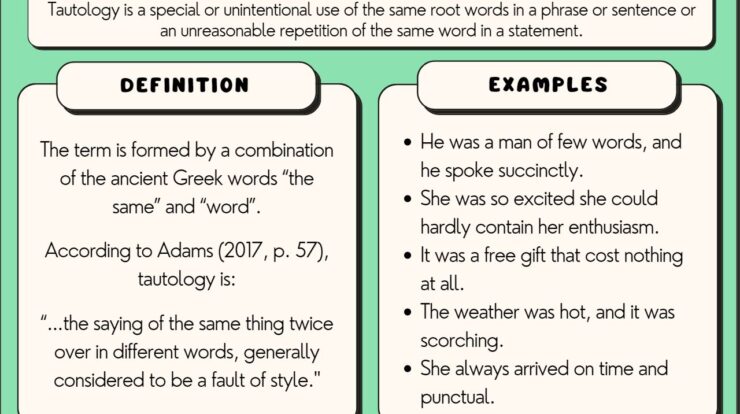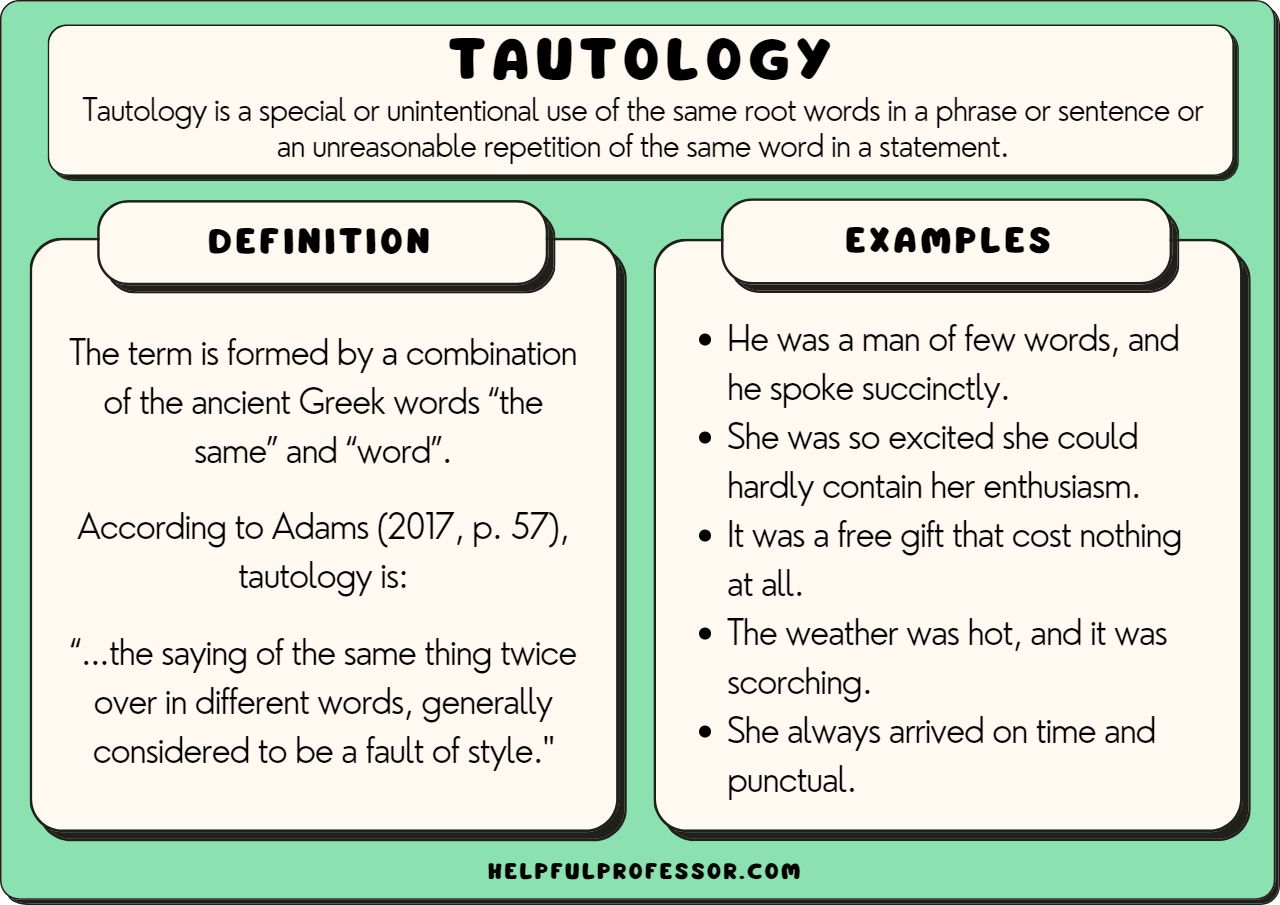
Tautological definitions, an intriguing concept at the heart of language and logic, unveil a world of self-evident truths that shape our understanding of communication and reasoning.
These definitions, characterized by their inherent truthfulness, provide a solid foundation for precise communication and rigorous logical arguments, leaving an indelible mark on various fields of knowledge.
Tautological Definitions

Tautological definitions are statements that define a term using its own root word or a form of the root word. They provide a logical equivalence between the term being defined and the definition itself, without adding any new information. Tautological definitions are significant in language and logic because they establish the meaning of terms and ensure clarity in communication.
Characteristics of Tautological Definitions
- Use the term being defined in the definition itself.
- Provide no new information beyond the term itself.
- Are circular in nature.
- Are often used to emphasize a term’s meaning.
For example, the definition “A circle is a round shape” is tautological because the term “circle” is used to define itself.
Types of Tautological Definitions
- Explicit tautologies:Directly use the term being defined in the definition.
- Implicit tautologies:Use a form of the term being defined in the definition.
For example, the definition “A triangle has three sides” is an explicit tautology, while the definition “A square is a rectangle with equal sides” is an implicit tautology.
Applications of Tautological Definitions
- Philosophy:To clarify concepts and ensure consistency in arguments.
- Mathematics:To define mathematical terms and establish their properties.
- Computer science:To specify the behavior of algorithms and systems.
- Law:To define legal terms and avoid ambiguity.
Limitations of Tautological Definitions
- Can be confusing if the term being defined is not well-known.
- Do not provide any new information or insights.
- Can lead to circular reasoning if used excessively.
Comparison with Other Types of Definitions
- Lexical definitions:Provide the meaning of a term using synonyms or antonyms.
- Operational definitions:Specify how a term is measured or operationalized.
- Theoretical definitions:Provide a conceptual explanation of a term.
Tautological definitions differ from these types of definitions in that they do not provide any new information or insights beyond the term itself.
Conclusive Thoughts: Tautological Definition

In conclusion, tautological definitions serve as indispensable tools in the realm of language and logic, offering a precise and unambiguous way to convey ideas and construct logical arguments. Their limitations, though present, do not diminish their significance in shaping our understanding of the world around us.
Quick FAQs
What is the significance of tautological definitions?
Tautological definitions play a crucial role in language and logic by providing self-evident truths that serve as the foundation for clear communication and sound logical reasoning.
How do tautological definitions differ from other types of definitions?
Unlike other definitions that provide informative content, tautological definitions are characterized by their inherent truthfulness and do not convey new information.
What are the limitations of tautological definitions?
While tautological definitions offer precision and clarity, they can also be limiting as they do not provide any new information or insights beyond their self-evident nature.
